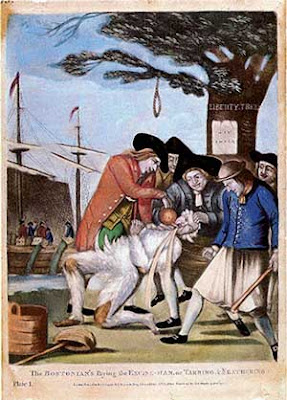The Townsend Act

In 1767, the British passed new taxes on glass, paper, teas, paints and other goods shipped to the colonies from Britain. Prime Minister Charles Townsend wanted to raise money to cover the cost for defending the colonies, and pay the salaries of governors and judges in the colonies. These were known as the Townsend Acts.
The colonists reacted by refusing to buy British goods. The colonists argued that they shouldn't be taxed since they had no representation in the British government. The colonists rallied behind the phrase, "No Taxation without Representation." Again Britain was forced to remove the taxes, all except for the tax on tea.




















0 comentarios:
Publicar un comentario